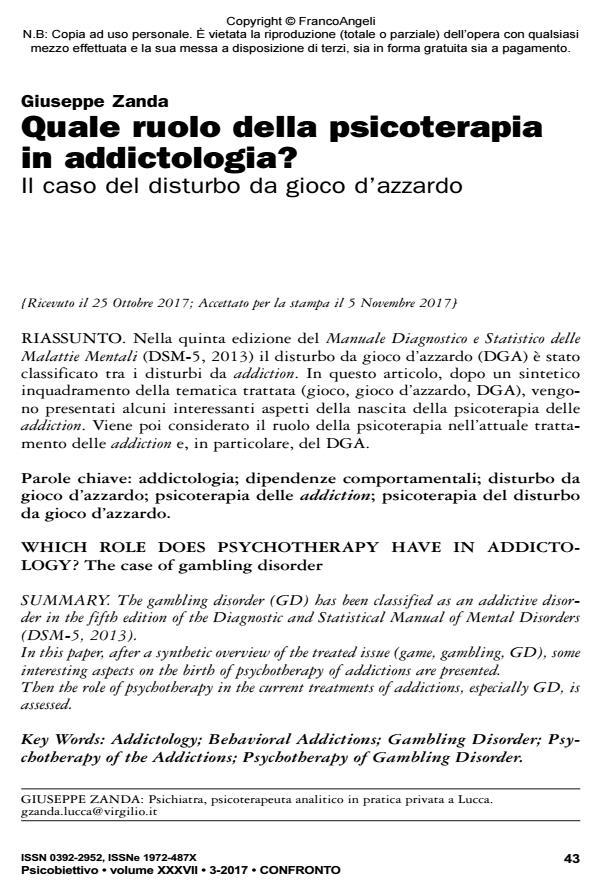Which role does psychotherapy have in addictology? The case of gambling disorder
Journal title PSICOBIETTIVO
Author/s Giuseppe Zanda
Publishing Year 2017 Issue 2017/3
Language Italian Pages 21 P. 43-63 File size 144 KB
DOI 10.3280/PSOB2017-003003
DOI is like a bar code for intellectual property: to have more infomation
click here
Below, you can see the article first page
If you want to buy this article in PDF format, you can do it, following the instructions to buy download credits

FrancoAngeli is member of Publishers International Linking Association, Inc (PILA), a not-for-profit association which run the CrossRef service enabling links to and from online scholarly content.
The gambling disorder (GD) has been classified as an addictive disorder in the fifth edition of the Diagnostic and Statistical Manual of Mental Disorders (DSM-5, 2013). In this paper, after a synthetic overview of the treated issue (game, gambling, GD), some interesting aspects on the birth of psychotherapy of addictions are presented. Then the role of psychotherapy in the current treatments of addictions, especially GD, is assessed.
Keywords: Addictology; Behavioral Addictions; Gambling Disorder; Psychotherapy of the Addictions; Psychotherapy of Gambling Disorder.
Giuseppe Zanda, Quale ruolo della psicoterapia in addictologia? in "PSICOBIETTIVO" 3/2017, pp 43-63, DOI: 10.3280/PSOB2017-003003